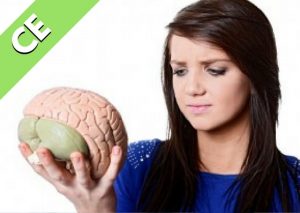An Introduction to Obsessive-Compulsive Disorder and What You Can Do About It

In this Webinar:
This 90-minute webinar with Dr. Lisa Firestone will introduce mental health professionals and individuals who struggle or know someone who may struggle with OCD to:
- What causes OCD
- The manifestations of OCD that are not often recognized
- The way OCD operates and the serious impact it has on people’s lives
- The most effective treatments for OCD
- Techniques individuals and therapists can use to effectively address OCD symptoms
Millions of people in the United States (around 1 in 40) are affected by obsessive compulsive disorder (OCD). Unfortunately, many people experiencing symptoms are not even aware that OCD exists or that treatment is available. When a person does seek help, a lack of OCD training for health professionals can lead to the wrong diagnosis.
OCD is described by the International OCD Foundation as a disorder in which people become stuck in a cycle of obsessions, “unwanted, intrusive thoughts, images or urges that trigger intensely distressing feelings,” and compulsions, “behaviors an individual engages in to attempt to get rid of the obsessions and/or decrease his or her distress.”
When a person has OCD, it’s as if the alarm system in their brain is faulty, trapping them in a hyperaroused state. They experience irrational or disturbing thoughts, and they engage in compulsive actions to relieve their anxiety and uncertainty. This is because a part of the brain that is designed to protect them by warning them of danger is being triggered too frequently and can be thought of as “lying” to the person about potential threats.
For many people suffering, sometimes silently, with the symptoms of OCD, it can come as a huge relief to be educated about what OCD is, how it operates, and what they can do to conquer it. The good news is extremely effective, very specific treatments for OCD exist. These treatments differ from traditional talk therapy and can be life-changing for people affected by this disorder.
Learning Objectives:
- Discuss the neurological process experienced by individuals with OCD
- List symptoms of obsessive-compulsive disorder
- Explain the use of an effective technique for reducing OCD symptoms
- Summarize the treatment methods found to be effective with OCD
Ordering Information
Once payment is received, you will be emailed a full video recording of this webinar along with all presentation materials.
Optional CEs (1.5) may be purchased through R. Cassidy Seminars. A link to purchase CE Credits will be included in the email containing all your webinar resources. More Info Here
Continuing Education Information
Optional CEs (1.5) may be purchased through R. Cassidy Seminars. A link to purchase CE Credits will be included in the email containing all your webinar resources. More Info Here




Leave a Reply